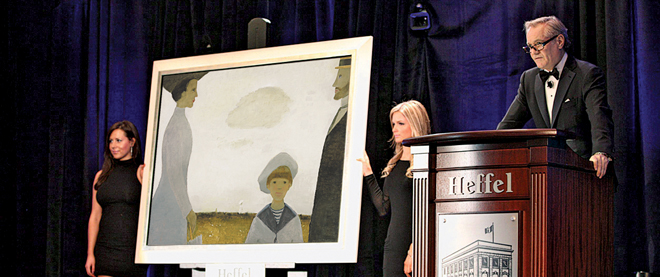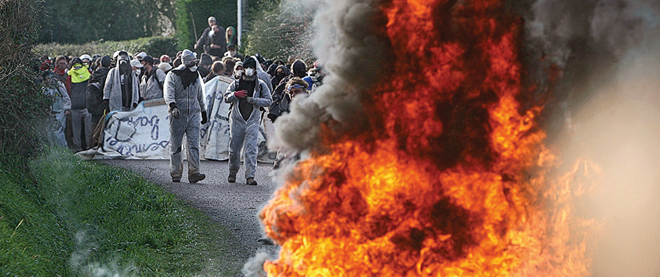Good news, bad news: Nov. 24-30, 2011
Investors take a pass on German bonds, while the UN finds AIDS may be increasingly be under control
Ho/CP
Share
Good news

Measurable improvement
Welcome news from the UN anti-AIDS program, as new statistics suggest we’ve turned a corner in the war against the once-deadly disease. HIV-related deaths in 2010 were down 21 per cent from their 2005 levels, UNAIDS reports, while the number of people surviving with the virus has reached a record 34 million. The improvements are due mostly to better access to treatment, particularly in sub-Saharan Africa, where infection levels are highest. But maintaining the momentum won’t be easy: donor funding for AIDS prevention fell last year as First World economies stagnated. Now is not the time to let up.
Mistakes were made
Egypt’s military rulers have issued an unprecedented apology for the recent killings of demonstrators in Tahrir Square, and are pledging to bring those responsible to justice. In Bahrain, King Hamad has bowed to pressure, and is promising human rights reforms after revelations that protesters in his country were tortured last winter. And in Yemen, President Saleh has signed an agreement to hand power to his vice-president—albeit one that leaves him immune from prosecution in the deaths of opponents. Positive developments. When will Syrians read the writing on the wall?
Shake it, baby
Scientists confirmed this week what moose at the side of the road knew all along: a little bit of salt isn’t such a bad thing. An international study of 29,000 people, including Canadians, suggests those with low sodium intake have higher rates of cardiovascular death and hospitalization for congestive heart failure than people who use moderate amounts, and those with high sodium intake had a higher risk of all cardiovascular events. Everything, including salt, in moderation.
Can I get a witness?
Police in Ohio have charged the leader of a breakaway Amish group with hate crimes for a series of haircutting attacks against his brethren. Sam Mullet and six followers allegedly sheared men’s and women’s hair, and then took pictures to document the humiliation. It took investigators months to gain victims’ trust and convince them to tell their stories. Nice work, but not quite as dramatic as the Harrison Ford movie.
Bad news

Going once, going twice . . .
The Greek crisis seemed inevitable. Italy has been sliding toward financial ruin for years. But it was unsettling when investors took a pass on more than a third of newly issued German government bonds—a vote of non-confidence in the country’s ability to prosper amid Europe’s turmoil. Germany remains a powerhouse, but it’s clear that the euro’s troubled nations threaten more than just themselves. With markets tanking, there’s talk in Berlin of cutting the laggards loose. A catastrophic scenario for EU weaklings, but no worse than letting Europe’s economic mother ship slip beneath the waves.
That sinking feeling
The politicians may still be debating how to tackle climate change, but its effects are hitting Canada’s North in the pocketbook. The thawing permafrost has been causing major problems as building footings and floors across the region settle deeper into the ground. One estimate puts the cost of repairs and upgrades at $250 million to $420 million. Then there’s the disappearing sea ice. A Canadian-led study published last week says the rate and scope of the shrinkage is unmatched over the past 1,450 years. Soon it will be the True North, strong and ice-free.
Deadly drug wars
Just weeks after the end of the Pan Am Games in Guadalajara, Mexico, police have found more than 20 bodies stuffed into three vehicles near one of the city’s most recognizable landmarks. A day earlier, attacks in the state of Sinaloa left 24 people dead. Sadly, such atrocities barely make the news. More than 40,000 people have died since the turf battles began in late 2006. Shocking.
Too cool for kids
Britain’s largest restaurant, Cosmo, joined a troubling trend recently by introducing a $4.80 surcharge on patrons who arrive with babies—even those still breastfeeding. Another posh eatery in England tried a similar fee last year (it cancelled the charge after a public outcry), while high-end restos on both sides of the Atlantic ban children outright. This insidious discrimination exposes a uniquely Western hypocrisy: even as we fret about declining birth rates, we’re becoming less and less family-friendly.